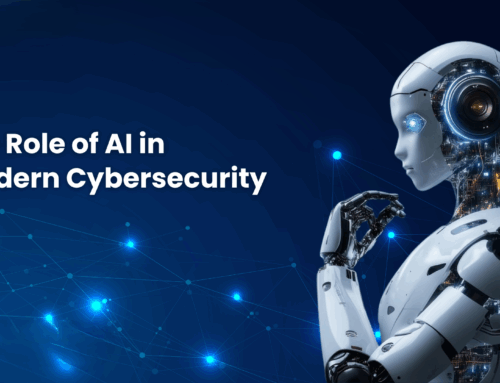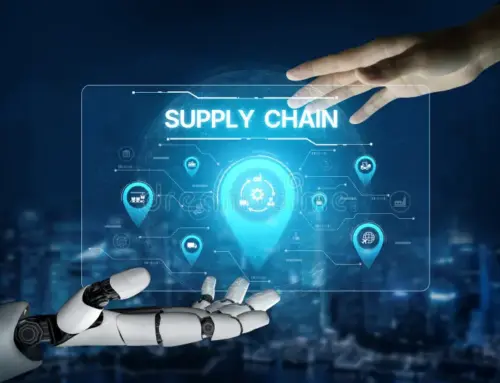
The Role Of AI In Intelligent Automation Services: Innovations To Expect In 2025
The Role Of AI In Intelligent Automation Services: Innovations To Expect In 2025
Do you realize that the worldwide intelligent automation market will hit an astounding $200 billion by 2025? This booming increase highlights the deep effect that artificial intelligence (AI) will bring to business methods. Essentially, it turns the way companies work and deliver worth to their customers on its head.
Intelligent Automation (IA) blends cutting-edge tech like AI, machine learning, and robotic process automation (RPA) to better and boost business operations. As we investigate how AI impacts smart automation services, we’ll examine the upcoming innovations forecasted to restructure industries and amplify operational productivity.
The Current Landscape of AI in IA Services
AI is already progressing well in intelligent automation services in different areas. A few of the most remarkable uses include:
- Data Analysis: AI algorithms analyze big datasets and find useable knowledge. These lets businesses choose actions based on those findings. For example, health service providers apply AI to study patient information. The goal is to diagnose and plan treatments more accurately.
- Fraud Detection: Banks use AI to keep an eye on transactions happening now, looking for signs that might suggest scams. This forward-thinking method significantly cuts the chance of losing money.
Incorporating AI into intelligent automation services boosts businesses by strengthening daily operations, cutting down expenses, and raising the quality of customer interactions. Firms that embrace these advancements have the edge in a market that’s swiftly moving digital.
Key Innovations to Expect in 2025
1. Intelligent Process Automation (IPA)
Intelligent Process Automation (IPA) use is expected to grow in all sectors. It is because businesses want to work better and make fewer mistakes. One of the significant changes is the integration of AI with Robotic Process Automation (RPA).
It changes the way companies automate tasks. This mix lets both simple and complex tasks be automated. For example, banks use AI-powered RPA to approve loans. It reduces mistakes and makes things faster.
The abilities of IPA systems also grow, helping them grasp the meaning, gain knowledge from experiences, and adjust to changing conditions. In the health industry, IPAs use patient data better, taking wisdom from past engagements to enhance treatment. This versatile nature helps companies react quickly to shifts in business requirements and client needs.
2. Predictive Analytics and Forecasting
AI is geared up to change the game in predictive analysis and forecasting, providing robust tools for understanding future trends and improving operations. AI uses machine data in predictive maintenance to foresee breakdowns before they occur, fine-tune maintenance plans, and reduce downtime.
Manufacturing firms employ AI-powered systems to spot irregularities in sensor data, which leads to timely actions that stop expensive malfunctions. With AI in supply chain management, exact predictions of changing demands can be made.
It smoothens the dealing with stock and boosts productivity. Shops use AI to study how customers buy things. It lets them change what’s in stock in real-time and prevents goods from piling up. As a result, they save a lot of money and run their operations better.
3. Conversational AI and Chatbots
Progress in conversational AI is creating room for smoother and more relevant exchanges between firms and their clientele. Future chatbots will have a stronger grasp of human language, making their responses more accurate and efficient.
This essential upgrade enhances their ability to communicate, permitting the bots to understand the subtle variation in human conversation and give personalized replies. For example, AI-driven chatbots in customer service can manage complicated questions, lessening the need for human involvement while providing quicker responses.
Moreover, chatbots will connect more and more with other business systems. This will help share information easily and improve customer service. Because of this connection, chatbots can get information from different places. This means customers will get accurate, current information.
4. Intelligent Document Processing (IDP)
Getting smart with Document Handling through Intelligent Document Processing (IDP) is rising. The drive for effective paperwork organization fuels this. Advanced AI algorithms make paperwork handling smarter and more self-reliant.
They can accurately extract and understand data from different document formats, cutting down the need for humans to enter data manually. For example, law companies They use IDP to extract essential contract sections automatically, making their review process muster.
IDP tools blend with various automation techniques. This pairing creates seamless procedures, boosts efficiency, and minimizes errors. When tasks centered around paperwork are automated, businesses let their team concentrate on more crucial duties.
Consider banks, for instance. They employ IDP to expedite loan application processes. The outcome? It provides faster approvals, leading to more content clients.
Ethical Considerations and Governance
The rise of AI in intelligent automation brings ethics to the forefront. Companies need guidelines for using AI right. They must reduce bias and make sure decisions are fair. Openness and taking responsibility are vital to earn trust. There should be ways to check and control these systems.
Many firms use ethical frameworks for AI and techniques that help explain AI decisions. Taking these steps eases concerns about data security and privacy. Meanwhile, they boost people’s comfort with results powered by AI.
Conclusion
AI’s knack for revolutionizing smart automation services is unquestionable. Peeking into 2025, the upcoming innovations pledge to boost work performance, upgrade customer interactions, and stimulate company expansion.
Still, companies need to steer through the moral concerns and obstacles attached to AI adoption, aiming for an accountable and lasting coming years. In this automation journey run by AI, the possibilities are endless.





